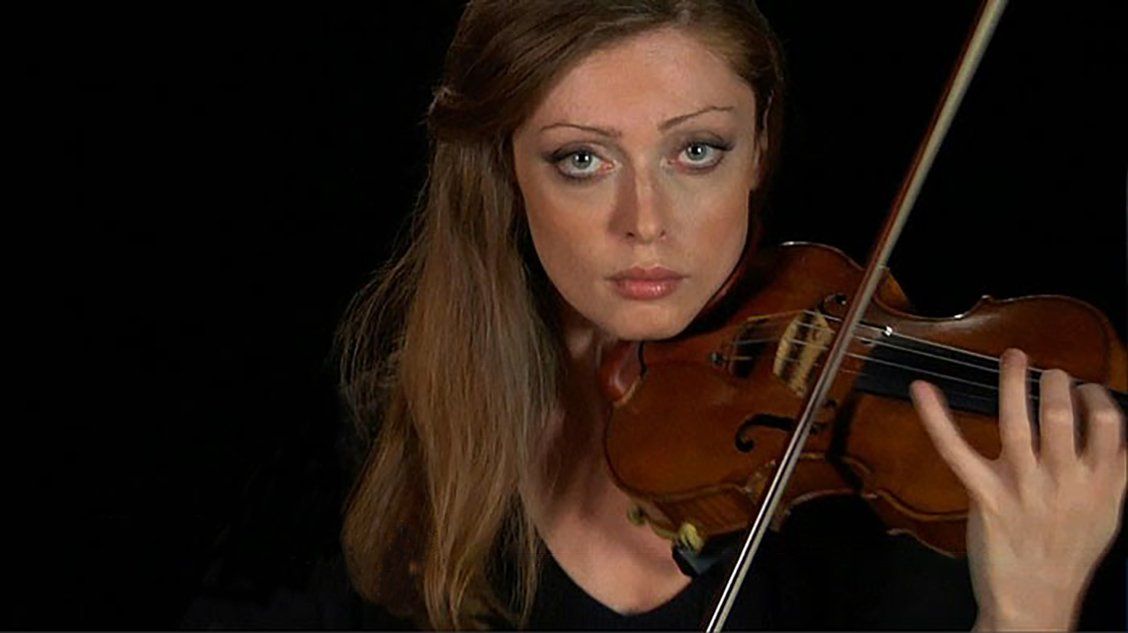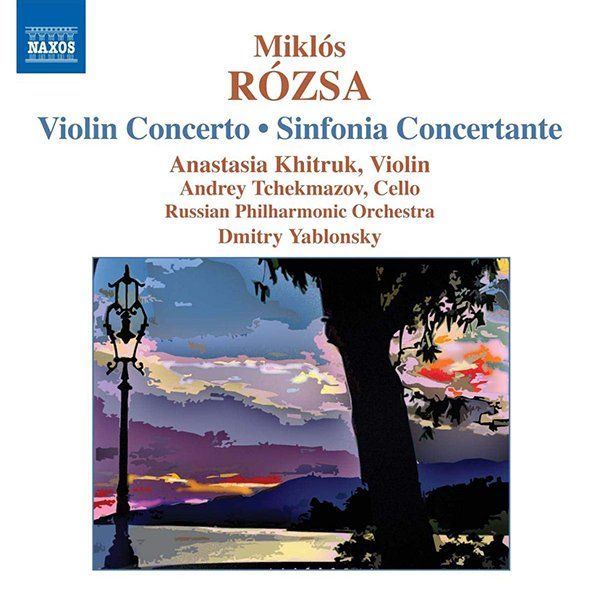Miklós Rózsa wrote music which is an inescapable part of American cinematic culture. Whenever you think of "Biblical" or "Roman" sounding music, like as not, you think of Rózsa. I knew none of this when I first heard his
Violin Concerto, which was written for, and recorded, by Jascha Heifetz. All I knew was that it was fantastic. Although Heifetz could imbue the most quotidian, pointless piece of fiddle-fluff with such power, conviction, and sheer bravado, the piece would tempt even the most conservative player. I sensed that this music was special and felt that, if offered the opportunity to perform it, I would do it full justice. The piece was hardly standard repertoire, and it was unlikely I’d ever have to play it. Occasionally, I would suggest it to a conductor, who would look at the score, and politely decline. Eventually I misplaced the Heifetz recording, and forgot about the Rózsa concerto entirely.
A little while ago, I found myself mired in a familiar predicament. What to record? I knew what not to record, but that still left 90% of known violin repertoire. Frantic head scratching ensued, and the usual excavation of my unruly pile of sheet music. Finally, a friend reminded me: "didn’t you always want to play the Rózsa concerto?" Not a bad idea, since it’s the centenary of the composer. I opened the music and started to play. It was even better than I remembered: beautiful, lyrical and savage by turns, and very difficult. In other words, just right! But the concerto is half a CD, so what else to include? Being totally out of ideas, I asked Naxos for guidance: what would go well with this piece? Their answer:
Sinfonia Concertante. Well, this was bizarre, what does Mozart have to do with Rózsa? In my infinite ignorance, I hadn’t realized that Miklós Rózsa had written a double concerto for violin and cello, for Heifetz and Piatigorsky no less, and called it a
Sinfonia Concertante. I looked at the music, and was amazed: here was instrumental writing on the highest level, beautifully scored, and totally new to me. It was time to go in search of Dr. Rózsa.
I found and contacted the Miklós Rózsa Society. Over many months I had the pleasure of meeting and discussing Dr. Rózsa - as they called him - with John Fitzpatrick, Jeffrey Dane, Steve Vertlieb, and finally on my way back from Moscow, his daughter Juliet. Rózsa wrote some of the greatest film scores of the 20th century, but his success as a film composer - three Oscars, no less - completely overshadowed what he considered to be his real work, writing for the concert stage. He wrote the
Violin Concerto after a long period of exclusively writing for film, happily ensconced in a rented house in Italy and a cloud of inspiration. The concerto is a marriage of all the traditions in which Rózsa was steeped: the bel canto, virtuoso style of violin playing from Western Europe, the traditional folk music of Hungary, and the orchestral lushness of the MGM tradition. The
Sinfonia Concertante, written much later, is that rare creature, a true double concerto. Very few composers are totally at home in more than one instrument, but Rózsa clearly had a deep affinity for, and an understanding of both violin and cello.
Both these works are constructed in a somewhat episodic way, with sudden tempo changes, and separation of thematic material into sections. Perhaps writing for film had encouraged this. I was very lucky in having a conductor for the Naxos recording sessions, Dmitry Yablonsky, who braved the difficulties of mobilizing the huge orchestra to move with agility and precision. Since we were recording in Moscow, the orchestra members were not familiar with Rózsa’s works, and their demanding rhythmic structure. Hungarian music - Rózsa was Hungarian - follows a very different system of accents than Russian music. Therefore, it can sometimes be difficult to create the proper phrasing of Hungarian music for Russian musicians. I was also very lucky that my cellist, Andrey Tchekmazov, was able to bring to the music a lyricism I had not noticed in Rózsa before.
In the process of making this recording I fell even deeper in love with the music. The score is rich, and revealed its mysteries very slowly. As I delved deeper into the story and the music of Miklós Rózsa I decided to try and celebrate this man’s legacy, and also his 100th birthday. I needed support, and when I called Dr.Bruce McMahan, of the National Christina Foundation, he understood immediately. He suggested I stop by to visit him in Florida on my way back from a concert in St. Maartin I was performing with Andrey. We discussed the amount of time, effort, and frankly money that would be necessary to make the Miklós Rózsa Centenary a reality and he generously agreed to be a lead sponsor. Since Bruce was not familiar with Rózsa, I am lucky that he has always liked my work and had confidence in my artistic judgment!
Thanks to the support of Ambassador Andras Simonyi, the first concert in celebration of Rózsa’s centenary birthdate was held at the Hungarian embassy in Washington. The guest of honor was Janos Starker, the great Hungarian cellist, friend of Rózsa, and dedicatee of Rózsa’s
Cello Concerto. Playing Hungarian music for one of my musical idols was both frightening and exhilarating: What if he hates it? What if he doesn’t?. But the best part was that I felt I had started to bring Miklós Rózsa home to a new audience and to the concert stage he loved.





